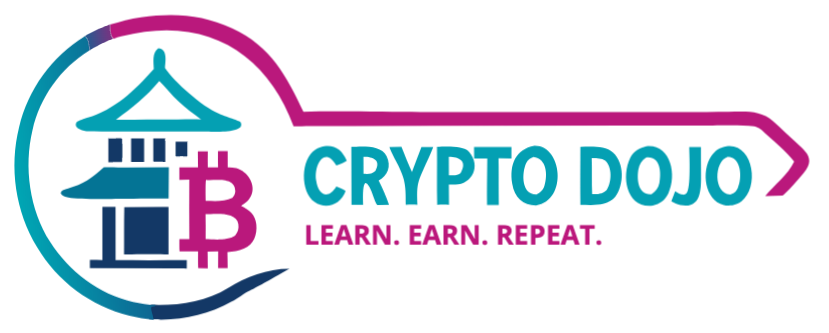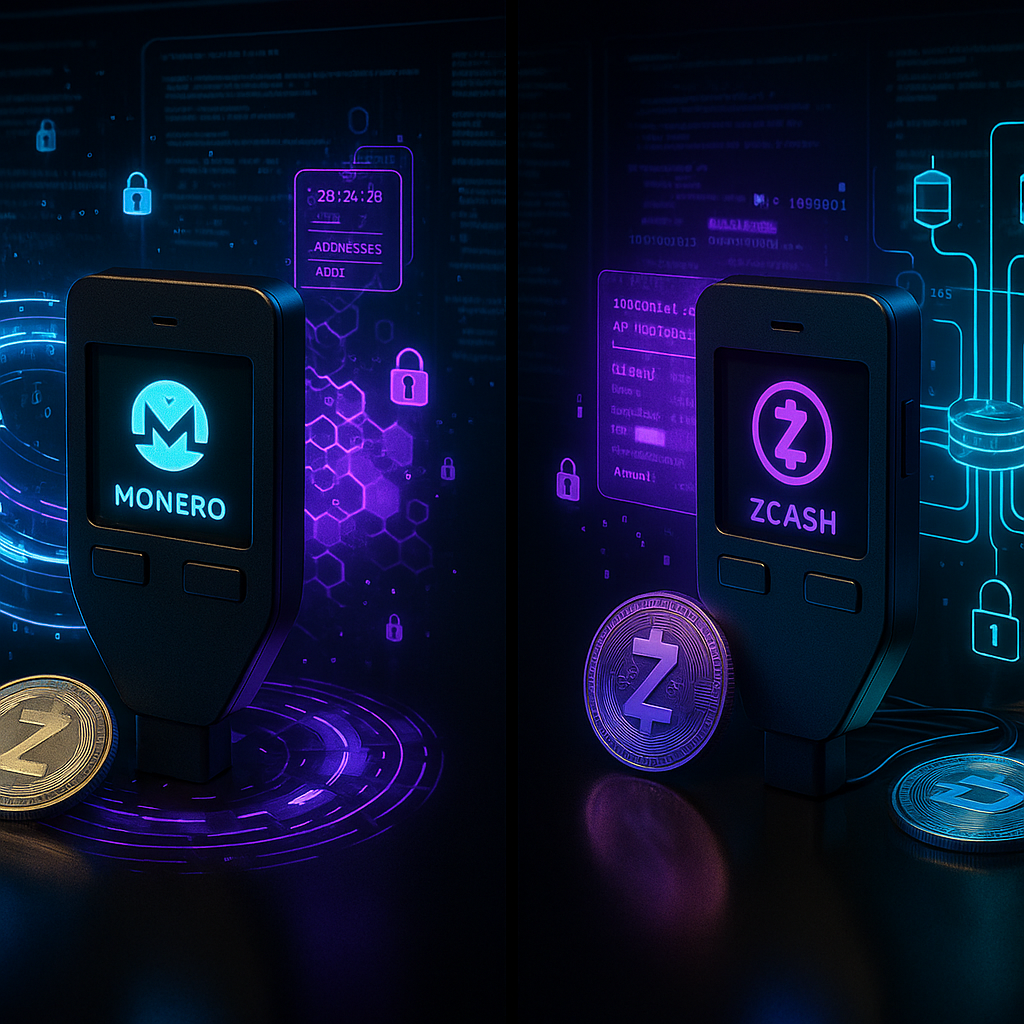Key Takeaways
Navigating the world of privacy coins can be a daunting task for newcomers, as each project offers unique approaches to encryption, anonymity, and practical utility. This guide simplifies the essential differences and strengths between Monero, Zcash, and Dash, enabling you to confidently compare their privacy technologies, usability, and relevance for anyone seeking genuine crypto anonymity.
- Monero sets the gold standard for end-to-end privacy. By default, Monero conceals sender, receiver, and transaction amounts with ring signatures and stealth addresses. This results in unmatched on-chain anonymity for every user.
- Zcash empowers user choice with selective privacy. Zcash users can decide between transparent and shielded transactions, leveraging advanced zk-SNARKs cryptography for robust privacy (when shielded mode is enabled).
- Dash delivers speed and optional privacy for daily transactions. Dash’s PrivateSend feature provides basic transaction mixing, prioritizing fast payments and easy use. Its privacy technology is more accessible but less comprehensive than Monero or Zcash.
- Privacy involves trade-offs between convenience, scalability, and adoption. Coins like Monero may face limited exchange support and slightly higher transaction fees, while Zcash and Dash balance privacy features with wider usability, liquidity, and mainstream appeal.
- Legal and regulatory factors shape the future of privacy coins. Governments and exchanges increasingly scrutinize privacy tokens, impacting accessibility, exchange listings, and long-term viability in different markets.
- Choosing the right privacy coin comes down to personal priorities. For those who prioritize absolute transaction privacy, Monero stands out. If flexibility and wider adoption are important, Zcash and Dash provide pragmatic alternatives.
With this foundational understanding of how Monero, Zcash, and Dash compare, you are ready to choose a privacy coin that aligns with your specific needs for anonymity, usability, and confidence in a rapidly evolving crypto landscape. Let’s examine their technologies, strengths, and real-world applications in detail.
Introduction
Selecting a privacy coin is more than a technical decision; it’s about safeguarding your financial footprint in an era when digital transactions are more traceable than ever. Monero, Zcash, and Dash offer distinct pathways to crypto anonymity, each with unique philosophies around privacy, usability, and adoption.
Whether you are drawn to Monero’s uncompromising privacy, intrigued by Zcash’s flexible approach, or seeking Dash’s blend of speed with optional anonymity, understanding their core differences is crucial. In this guide, we will explore what distinguishes each privacy coin and help you determine the best fit for protecting your transactions and ensuring your peace of mind.
Stay Sharp. Stay Ahead.
Join our Telegram Group for exclusive content, real insights,
engage with us and other members and get access to
insider updates, early news and top insights.
 Join the Group
Join the Group
Understanding Privacy Coin Technology
At the heart of privacy coins are advanced cryptographic techniques designed to enhance transaction anonymity and data security. Each major privacy-focused cryptocurrency implements these technologies in distinctive ways, resulting in different user experiences and privacy levels across sectors such as finance, business, healthcare, and humanitarian aid.
Ring Signatures and Stealth Addresses
Monero’s privacy architecture relies on ring signatures, which blend multiple digital signatures into a single cryptographic group. When a Monero transaction is created, the actual sender is obscured by mixing their signature with several decoy signatures, making it nearly impossible to identify the source.
This process can be likened to a confidential meeting where anyone at the table could have signed a document, but observers cannot pinpoint who. Stealth addresses add another layer by generating unique, one-time addresses for every transaction, blocking both sender and recipient information. For professionals in fields such as finance or legal services, these features offer secure, untraceable payments.
Zero-Knowledge Proofs
Zcash sets itself apart by integrating zk-SNARKs (Zero-Knowledge Succinct Non-Interactive Argument of Knowledge). This cryptography enables users to validate transactions without exposing sensitive details about the sender, recipient, or transaction value.
Imagine it as a sealed envelope; someone can confirm that it contains legitimate documents without ever opening it. This technology provides Zcash users with the power to conduct fully private, auditable transactions—a compelling option for organizations needing selective transparency, such as healthcare providers managing confidential billing or firms requiring compliance with privacy regulations.
Coin Mixing and Transaction Obfuscation
Dash utilizes a privacy-enhancing method known as CoinJoin, branded as PrivateSend. This technique mixes multiple users’ coins together in a single transaction, making it more difficult to trace individual funds. The mixing process is managed by a network of masternodes, which handle multiple rounds of transaction combination.
While this method does not offer the absolute privacy of Monero or the advanced cryptography of Zcash, it still protects user anonymity during everyday payments or consumer purchases. This becomes a useful feature for retail and e-commerce environments where quick, private payments matter.
Comparing Major Privacy Coins
Let’s dig deeper into what sets each privacy coin apart at a technical and strategic level.
Monero (XMR) Analysis
Monero is designed for mandatory, system-wide privacy. Its notable technological pillars include:
- RingCT (Ring Confidential Transactions): This method encrypts transaction amounts, so outsiders cannot discern transferred values.
- Stealth addresses: Every Monero transaction utilizes a unique, temporary address, ensuring that only the recipient can recognize and claim the funds.
- Ring signatures: Each transaction is signed by a group, disguising the true sender within credible decoys.
By enforcing these privacy features for every transaction, Monero builds one of the largest anonymity sets in crypto, making it especially attractive for individuals and organizations requiring undisputed on-chain privacy. Think political activists, journalists, or charitable groups operating under restrictive regimes. The trade-off comes in the form of slightly larger transaction sizes and higher fees, as comprehensive privacy demands more computing power and blockchain space.
Zcash (ZEC) Deep Dive
Zcash brings balance by allowing users to choose between transparent and shielded transactions. Key strengths include:
- zk-SNARKs: Enabling fully private (yet verifiably secure) transactions.
- Selective disclosure: Users can provide transaction details to third parties for compliance or auditing. This is especially powerful for business and regulatory environments.
- Viewing keys: Owners can grant access to transaction histories for specific purposes, such as audits, financial planning, or healthcare billing.
This dual approach improves accessibility and regulatory acceptance, supporting both private payments and transparent business activities. The main challenge is participation; only a portion of users choose shielded transactions, which somewhat decreases the overall anonymity pool.
Dash (DASH) Examination
Dash is primarily built for speed and usability, featuring:
- PrivateSend (CoinJoin-based mixing): Users can opt into privacy by mixing funds through multiple rounds with other participants.
- Masternode network: Special servers process and secure the mixing function while enabling instant payments for day-to-day use.
- Denomination-based system: Transactions are grouped into standard sizes, simplifying mixing and reducing traceability.
Dash’s privacy is practical for smaller, frequent payments, making it popular among consumers and merchants in retail, travel, or online services. However, the privacy it offers is less robust than Monero’s, and the system can be less effective if many users prefer transparent transactions for ease of use.
Head-to-Head Privacy Features Comparison
To truly understand how these coins stack up, consider their privacy, network security, and trade-offs.
Privacy Strength Assessment
- Transaction Privacy
- Monero: Delivers high, non-optional privacy for every transaction.
- Zcash: Offers very high privacy if shielded transactions are used; lower anonymity if transparent transactions are chosen.
- Dash: Provides moderate privacy from mixing. The effectiveness depends on how often users engage PrivateSend.
- Network Privacy
- Monero: Augments on-chain privacy with Dandelion++ for network-level anonymity.
- Zcash: Supports privacy with TOR-friendly functionality, though network-level protection is not as advanced as Monero’s.
- Dash: Depends on the user’s choice to use TOR or similar tools. Standard privacy by default.
- Scalability vs. Privacy Trade-offs
- Monero: Robust privacy leads to larger data footprints and higher fees, impacting scalability.
- Zcash: Transparent transactions are efficient; shielded ones require more resources but are becoming lighter with ongoing improvements.
- Dash: Offers a balance, enabling reasonable privacy without significant scalability sacrifices.
Real-World Applications and Adoption
Privacy coins serve critical roles across diverse sectors beyond simple peer-to-peer payments.
Stay Sharp. Stay Ahead.
Join our Telegram Group for exclusive content, real insights,
engage with us and other members and get access to
insider updates, early news and top insights.
 Join the Group
Join the Group
Current Usage Patterns
- Business Confidentiality: Enterprises use privacy coins to protect sensitive corporate transactions, M&A activities, or payroll, especially where financial secrecy provides a business edge.
- Personal Privacy: Everyday users leverage these coins to keep shopping, charitable donations, or salary payments private, addressing growing concerns over financial surveillance.
- Humanitarian Aid: Nonprofits and international relief organizations depend on privacy coins to deliver support in regions hostile to transparent funding, ensuring the safety of recipients.
- Healthcare and Legal: Privacy coins enable discreet payment for medical procedures or legal representation, critical in areas with restrictive or stigmatized services.
- Retail and E-commerce: Merchants and consumers may use privacy coins to conduct confidential purchases, protecting both personal data and competitive information.
cryptocurrency guide for beginners
Regulatory Landscape
The evolving regulatory environment shapes privacy coin adoption and viability:
- Exchange Delistings: Some centralized exchanges, under pressure from regulators, have dropped certain privacy coins to comply with anti-money-laundering guidelines.
- Compliance Tools and Features: Selective disclosure functions and viewing keys are increasingly important, helping coins like Zcash build bridges to regulators while preserving user privacy.
- Jurisdictional Differences: Regulations vary widely. Some regions support privacy coins for innovation and financial freedom, while others severely restrict or ban them, influencing their broader adoption.
Technical Challenges and Solutions
Key technical obstacles for each coin continue to be addressed:
- Monero: Developers work on reducing transaction size and improving blockchain efficiency, with innovations like Bulletproofs and Triptych.
- Zcash: The community focuses on making shielded transactions faster and less resource-intensive, encouraging broader use.
- Dash: Ongoing improvements aim to balance usability and privacy, streamlining the PrivateSend process to appeal to both everyday users and power users.
Other industries, such as environmental science or education, may also benefit as privacy coin protocols evolve, supporting confidential funding for sensitive research or protecting student records and financial aid disbursements.
Conclusion
Privacy coins mark a pivotal chapter in the story of digital finance, uniquely blending advanced cryptography with an increasing demand for personal and organizational privacy. Monero, Zcash, and Dash each embody a distinct approach, ranging from mandatory, all-encompassing privacy to offers of customizable, user-driven protection. These technologies empower individuals and organizations to shield sensitive data, conduct confidential business, and deliver aid where transparency could mean risk.
The road ahead is shaped by regulatory scrutiny, technological innovation, and evolving market demands. As privacy features become more efficient and compliance tools mature, users of all experience levels will need to carefully weigh transparency, scalability, and legal considerations. For anyone stepping into the crypto arena, mastering these differences is essential. This ensures your financial decisions reflect your values, risk tolerance, and goals for autonomy.
Looking to the future, the privacy coin landscape will continue to shape (and be shaped by) the ongoing tension between financial freedom and societal oversight. Those who develop adaptable strategies, stay informed on legal developments, and make intentional choices about privacy and transparency will be best positioned to thrive. In the decentralized economy, true empowerment comes not just from owning your assets, but from understanding the tools that protect them. Learn, earn, repeat. Step confidently into the privacy-first future of crypto.





Leave a Reply